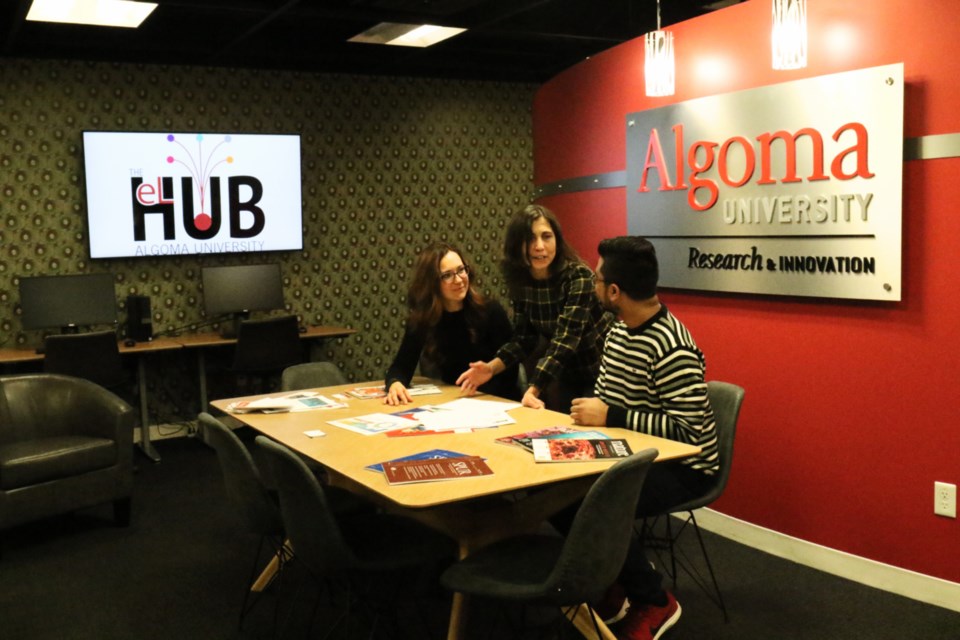Algoma University has developed a new innovation space where students, faculty and employers will be able to collaborate on research projects.
The Experiential Learning Hub - which officially opened its doors Tuesday - will look to align the university’s research talent with the private sector and government organizations in order to further grow the city’s talent pool, while bettering the school’s chances of receiving external funding for research projects at the same time.
“We know that northern Ontario absolutely needs more companies to establish here, and the way to move companies forward is through added value that comes from a knowledge-based economy, and you need to develop new products using advanced knowledge, so that they can have those innovations that can sell,” said Dr. Pedro Antunes, an associate biology professor who also serves as the executive research lead for Algoma University. “So that’s what we’re here for - to train people that can do that, have that kind of critical thinking skills that can move companies forward.”
Some companies - namely Algoma Power, Lallemand Plant Care and Algoma Steel Inc. - are already working in partnership with the university on research projects.
Steve Robinson, a fourth-year student at the university, told onlookers during the hub’s launch that experiential learning is helping him in his current work with Lallemand Plant Care, which develops a range of biofertilizers, biostimulants and biological plant protection products.
“If I’m entirely honest, my goal with this was just to get a head start on my thesis, but it quickly became much more than that - it became a place where I could not only acquire new skills, but also new ways of thinking, and how to improve the way I already thought critically about the things I was working on, in a way that classes just can’t give you,” Robinson said.
The hub is located on the ground floor of the university’s Convergence Centre building, which now houses the office of research and innovation in the name of building a more collaborative work environment.
Another component of the hub, located in Shingwauk Hall, is currently under construction.
“Everybody wins with something like this in the community,” Antunes told reporters following Tuesday’s launch. “The university wins, because we are able to have faculty that is getting in funds - allowing them to do more research - which is what they’re already passionate about.”
“The students gain because they are learning by doing, and have access to resources, externally funded research, that otherwise they wouldn’t have, and the community also gains because they have access to a pool of talent that could work for them eventually - or even during - their degree.”
Antunes says that funding for the Experiential Learning Hub - also known as the ‘EL Hub’ - was funded through a combination of internal funds from the university, in addition to incoming grants specifically intended for experiential learning.
